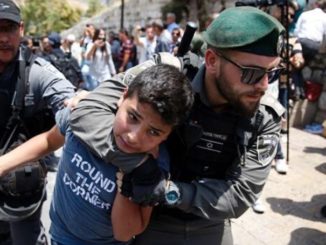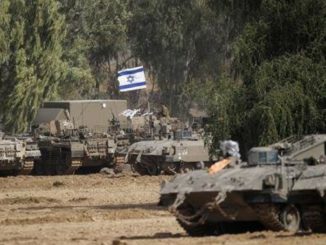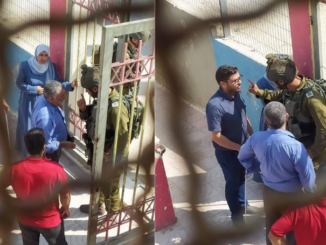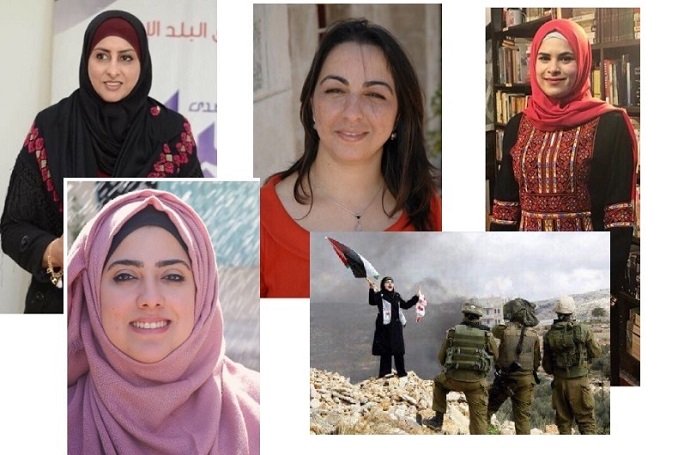
By Wasan Abu Baker
Mahmoud Darwish, A Palestinian poet summed up what I need to say about Palestinian women with the words “Mother, I will not name you a woman, I will name you everything”.
In celebration of Women’s International Day on March 8th, I am unveiling the stories of five Palestinian women scattered around the world, from Ramallah, to Tulkarem, to Jalil, to Lebanon.
Palestinian women have faced the struggle and continue sacrificing daily to fight for freedom, reject humiliation, and resist Israeli occupation. Through their struggle, they have woven myths of bravery towards freedom.
Palestinian women played a key role in the 1936 revolution, the war of 1948, the war of 1967, the first Uprising (The Intifada of Stone) in 1987, and the second uprising (Al Aqsa Intifada) in 2000, and the popular resistance adopting Boycott Divestment and Sanctions (BDS) in 2005.
In violation of international law, Palestinian women are in captivity with statistics showing that 84 women and girls were arrested in 2017. And according to The Palestinian Information Center, At least 370 Palestinian women and girls were arrested by the Israeli occupation forces since the second uprising (Al Aqsa Intifada) in 2000.
The treatment of Palestinian women by the Israeli occupation violates international law and includes subjection to various types of pressure (psychological and physical) and displacement from their homes. After the war of 1948 and during the 1967 war, hundreds of thousands were displaced from their homeland.
Palestinian women have transcended all traditional barriers and have been civically engaged in political life, all forms of resistance, preserving national identity, uniting the dispersed family, and hanging on to the memory for Palestinians who were raised by refugee families and who never saw Palestine.
All of this helped preserve a clear picture of Palestine through the stories told by mothers, grandmothers, and aunts. Despite all the efforts to erase the Palestinian identity, the women through oral history, embroidery art, and cuisine, Palestinian women were able to preserve this identity and pass it on to the next generation.
Tasaheel Burnat
Tasaheel Burnat is a 37 years old Palestinian activist from the village of Bilin near Ramallah in the West Bank. Together with her husband Iyad Burnat and their five children, they are considered conductors of the popular resistance in Bilin.
In 2004, the occupation confiscated 60% of the village land in order to build the Separation wall on the village farmers land removing the olive trees.
Tasaheel said, since 2005 Bilin residents have been engaging in weekly Friday demonstrations with international peace activists from all over the world. She is a symbol of Palestinian women who resist the occupation alongside their families. Tasaheel was subjected to violence many times and her husband jailed many times.
Three of her sons were arrested when they were under the age of 18. Majd was injured and he is receiving medical treatment in Turkey, Abed Al Khaliq is injured and is in prison, and Muhammad was injured and jailed but was release after paying a fine. Mayar and Mohee Aldeen are very young but demonstrating with the family and villagers.
Resistance is a part of the Burnat family life, and even though their house, like many other houses in Bilin, is targeted for nightly raids by Israeli soldiers she and her family will not give up their right to protect their land and way of life.
Hiba Al-Jindawi
Hiba Al-Jindawi is a Palestinian journalist living in Hilalia Area near Sida in Lebanon. Her grandparents were refugees from Nazareth during the war of 1948 and fled to Lebanon. Hiba grew up in Lebanon and studied journalism at Al Beirut Arab university. She is an activist in national student campaigns including the International Campaign for the Preservation of Palestinian Identity.
Palestinians in Lebanon lived without identity and refused to give up their Palestinian identity. They dreamt of a return to Palestine one day.
In 2017, Hiba was involved in a program that collected stories and documented accomplishments of Palestinians in the diaspora. She loves photography and dreams of taking pictures of Palestine revealing the beauty of her homeland when she is granted the right of return.
Farah Akef Hamouda
Farah Akef Hamouda was born in 1994 in the city of Tulkarem. She adored art at a young age and dreamt of becoming a famous artist. She earned her bachelor’s in art from the Art college in An Najah University and graduated in 2016.
Farah chose art to serve her country by preserving the Palestinian identity through art. She believes that art brings people together. She likes to teach children that art is the language of nations and the language of freedom. One day she will become an international artist.
Rola Khalid Ghanem
Rola Khalid Ghanem is a Palestinian novelist and lecturer who teaches literature. She was born in the city of Tulkaram in the West Bank. Rola earned her bachelor’s degree in Arabic literature at An Najah University. She is currently preparing her doctorate in Tanta University in Egypt.
Her influential stories containing many tales about life in Palestine during the uprising have won many competitions. She considers herself a rebellion novelist and an ambassador of Palestinian women in the Arab world.
Her desire is to use the power of her words to speak the truth and show that despite the tragic circumstances of the occupation, creativity and beauty is born from the womb of suffering. Her two published novels are “The Green Line” and “Feelings out of the Law”.
Rana Bishara
Rana Bishara is a Palestinian artist born in the Palestinian village of Tarshiha in the Upper Galilee. She studied Fine Arts and graduated from New York University in modern and is one of the most active Palestinian artists of the land of 1948.
Rana organized many exhibitions locally and internationally and wants to draw more attention to the story of Palestine. With her art Rana is raising awareness about Palestine, its people, and its history. Despite the occupation, Rana’s message has become stronger as art has the power to break many barriers.
Palestinian women with their contributions and accomplishments highlight the history of Palestinian resistance. Palestinian women are activists, martyrs, prisoners, teachers, writers, poets, and artists. They are moving history forward, echoing our lives and fighting for freedom.
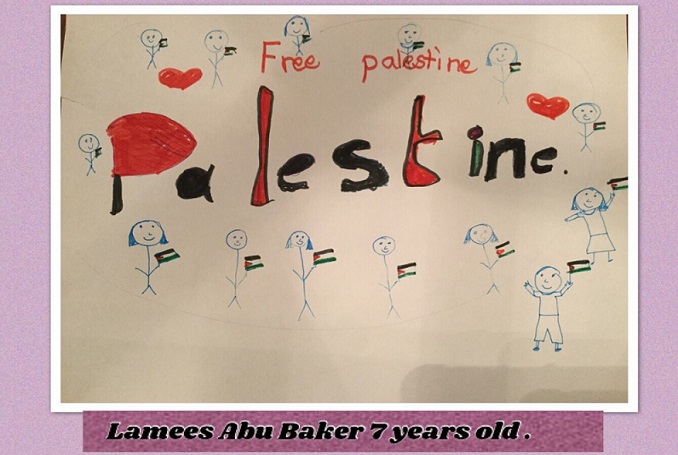
–Wasan Abu-Baker is an American Activist with a Palestinian Origin. She is the Vice Chair of Corpus Christi National Justice for our Neighbors in Corpus Christi, Texas, a member of ABCD New Addition Team, and a staff writer for Kings River Life Magazine in the US. Wasan is an educator and a teacher. She earned her master’s degree in special education and graduated from St. John Fisher College in Rochester, New York. She contributed this article to PalestineChronicle.com.



